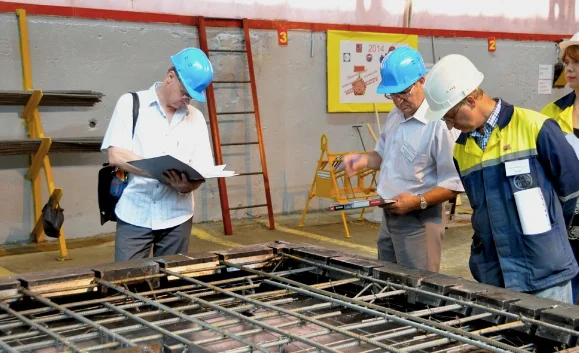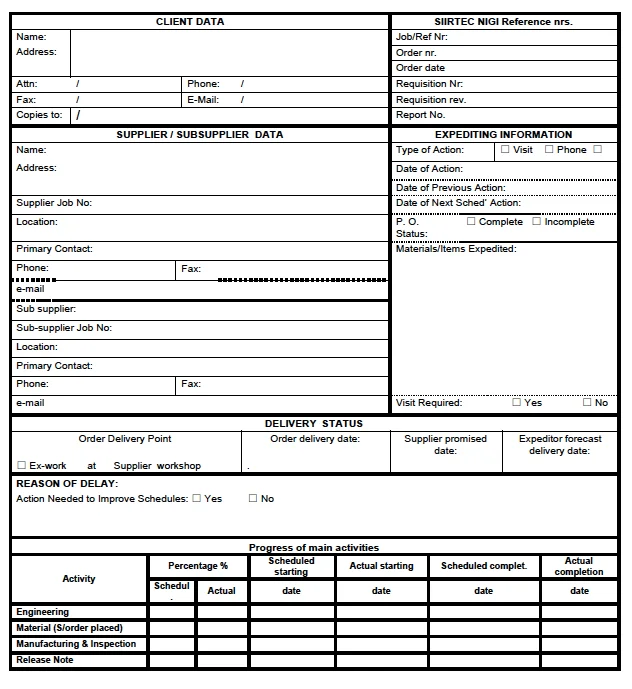Expediting
There is no secret that for any Customer today the main criteria for choosing a Supplier are these three components: quality, optimal cost and acceptable delivery time. However, even if the Supplier meets all the criteria and successfully passes technical audits, there are risks associated with poor quality and late delivery. In this regard, the last few years there has been a trend of increasing interest in the so-called expediting, or service for tracking the timing and volume of production, as well as direct risk assessment when fulfilling the requirements of orders and issuing recommendations to prevent disruption of delivery times.
Expediting. Control of imported products.
The main task of a specialist expediter is monitoring of deliveries and tracking of potential production delays associated, for example, with no auxiliary materials or contracts, staff shortages, deterioration, or repair equipment. Thus, unlike the technical inspection of production quality, the results of which the customer receives only as a report of the production status and quality of products, expediting involves an active role of an expert not only in obtaining reliable information about the production status, shipment and/or delivery, but also in assessing the risks in the orders execution, developing measures and recommendations to prevent possible failures of the finished product delivery to the Customer. In addition, according to the experience of Western experts, the duties of the expediter may also include the assistance in eliminating of identified difficulties: negotiations with sub-suppliers, clarification of the reasons for late delivery of materials and reporting, organization of the relationship between the departments to ensure the proper level of communication.
Expediting can be carried out both during the full production cycle, i.e. from the stage of approval of technical documentation by the Customer and ending with delivery directly or separately at any stage of production or as a measure in response to already disrupted delivery times. The most common problems can occur in the following steps:
- Coordination, approval and provision of technical documentation for production.
- Purchase of materials, components and related services.
- Production.
- Assembly and consolidation.
- Inspection and acceptance tests.
- Marking and packing of assembled units.
- Delivery to the Customer.
In addition, expediting may include the ability to identify areas, in which certain Customer’s actions may affect the compliance with schedules, for example, in the case of late transfer of technical specifications or necessary specifications to the Supplier or its failure to confirm at a certain date.

- to track the timely delivery of construction materials and equipment;
- to attract the necessary specialists to the construction process;
- to control all production processes for compliance with technological standards and requirements; to exclude failures and untimely deliveries of construction equipment;
- to improve the performance.
Our specialists are ready to help you to ensure the highest quality stage-by-stage control of the work by Supplier.

REPORT EXPEDITING